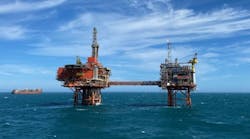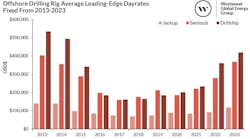In 2013, the UK marked the 25th anniversary of Piper Alpha and the tragic loss of 167 offshore workers. Following the public enquiry chaired by Lord Cullen, a broad range of commitments were agreed on by the offshore industry to raise overall safety standards. However, more recent (and equally well documented) serious safety events have served to question just how much real progress has been made in truly tackling human error and the other principal causes related to these types of events. What has become evident is that offshore companies that fail to effectively manage human error are increasingly having a tough time predicting upcoming operating expenses. Traditional and previously accepted operating risk assumptions are being challenged (or even derailed), precisely at a time when regulators are increasingly demanding more assurance.
Incurring a serious safety event is never good news. It hits corporate scorecards and for offshore contractors in particular, can result in embarrassed looks in front of highly valued and much sought after customers. Fortunately, for most offshore companies, serious safety events are a relatively rare occurrence. But it is precisely this infrequency that lulls organizations into a false sense of security and why their corrective actions (to address the problem) often fall short of something that resembles a permanent "fix."
The reason? Well if such events only happen on a rare occasion, then surely corrective actions must be targeting the isolated behaviors of just a few rogue individuals. The assumption being that when people execute work, deviations from policies or procedures must also be a very rare thing. This line of reasoning – while palatable to senior leadership demanding assurance that a repeat event is not imminent – may not necessarily reflect how work is truly executed. The harsh reality might just be that while incurring serious consequences may be rare, unauthorized deviations from policy and procedures are not. In fact, employees taking short cuts and risks might be far more commonplace than companies would like to think.
To make matters worse, offshore companies may unknowingly be fostering cultures that support a culture of "casual compliance." How so? Because if there is only about a 5% chance of anything going seriously wrong when a risk or short cut is taken, (i.e. human error), then conversely, there must be a 95% chance of getting it right. In other words, if risky behaviors result in saved time and money, then individuals are actually more likely to receive positive reinforcement and recognition for their efforts. The result? Individuals and teams will almost certainly repeat the same behaviors next time around.
So in other words, human error is not really an error at all. In most cases it is a deliberate and premeditated choice where individuals and teams willingly take short cuts and risks because ultimately, they sincerely believe this is what they are being asked to deliver. A win-win situation. Good for the company and good for the employees.
So corrective actions that address human error by simply targeting what appears to be the isolated behaviors of a few individuals (nominally those directly involved in the serious safety event), will inevitably fall short, because the problem they are attempting to fix is generally much more systemic. And while offshore companies are very adept at reacting to specific and recognizable performance problems such as equipment failures and downtime, they can find it more challenging dealing with problems (such as human error) which are harder to define and whose roots lie deeply buried in how organizations ultimately measure and reward performance.
So what is the answer? Well rather than continue with more of the same, it may be time to step back and look at designing corrective actions that fundamentally re-examine how safety performance is routinely measured and rewarded. In other words, start shifting the focus of safety performance from consequences to execution. Stop over relying on injury numbers and classifications to paint the whole picture of performance, but actively seek out and measure unauthorized deviations from job plans and documented work instructions – regardless of whether they could have resulted in a potential injury or not. In short, did the work consistently get executed as expected – and if not, then why not? While this all sounds so easy, if an offshore production facility or drilling rig is on non-productive time, then the combined pressures placed on line supervisors to remedy the situation (whether perceived or real), often act as a powerful influencer to simply look the other way. And as a result, another valuable insight is lost. So do not ever permit your organization (either directly or indirectly) to ever reward behaviors that saved time and money, if a short cut was required to get you there. That in itself only exasperates the problem further.
Such corrective actions, while not tackling human error directly, will undoubtedly allow organizations to begin to better understand the breadth and depth of the challenges accompanying human error. And it is only from this viewpoint that systemic fixes can effectively be designed and implemented and offshore companies can finally begin to achieve the lasting results they increasingly seek.
Avoid falling into the old trap of believing that human error simply starts and ends with a few "bad apples." Willingly accept and swallow the bitter pill that the behaviors (human error) resulting in a serious safety event, may ultimately be far from isolated and more likely, are simply a recognized and accepted way of how work is routinely performed. So if organizations truly want to "fix" human error by changing behaviors at the worksite next time around, then it may be time to begin by leading with a few different behaviors of their own. First change how performance is recognized and rewarded, and shift the focus of safe work from consequences to execution.
Peter V. Bridle
Executive Director
Pegasus Risk Management




